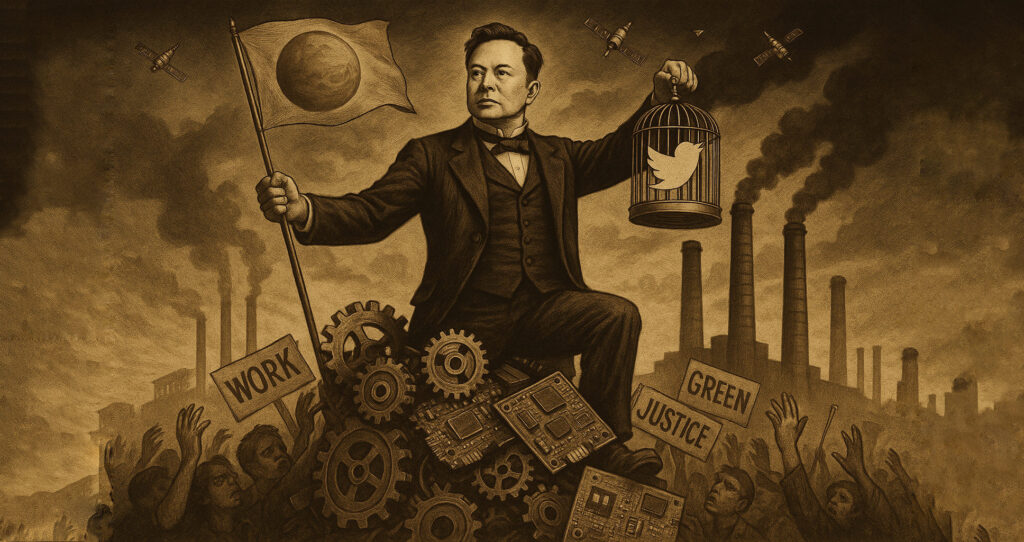 “History doesn’t repeat—but it does inform. And those who profit from forgetting it rarely pay the price alone.”
“History doesn’t repeat—but it does inform. And those who profit from forgetting it rarely pay the price alone.”
In the gilded glare surrounding Elon Musk—billionaire, disruptor, technocrat—what strikes me most is not his novelty, but his familiarity. We’ve seen this man before. Not this exact name, not this exact face, but this shape of ambition wrapped in salvation mythology. Musk isn’t a rupture in American history. He’s its recurrence.
We’ve always canonized those who claimed to build the future. In the 19th century, it was Carnegie with his steel, Rockefeller with his oil, Ford with his factories. Each offered progress with one hand while the other squeezed labor, rewrote law, or reshaped the press. They were called visionaries. Today, Musk is called the same.
But what does he build, really?
His cars are assembled through supply chains riddled with labor violations. His satellites blanket the sky with no vote from the earth below. His rockets romanticize Mars while water systems in Mississippi and Native lands remain undrinkable. His social media empire—now weaponized under a name drawn from science fiction—erodes truth in real time. And yet, he frames it all as frontierism. He speaks in the language of pioneers, disruption, and inevitability.
This is not innovation. It is imperial repetition.
Musk’s real skill is myth engineering. Like Ford before him, he wields media not to inform, but to reinforce an origin story. He speaks to a public conditioned to equate wealth with wisdom, and disruption with destiny. In doing so, he draws from an old American pattern: the Industrial Saint. The man who saves humanity by remaking it in his own image.
And in this story, dissent is treated as heresy. Unions are the enemy. Regulators are bureaucratic obstacles. Journalists are noise. Critics are canceled—or worse, discredited.
But here’s the truth: no amount of innovation grants immunity from accountability. We’ve been here before. We’ve seen what happens when private empires operate without public reckoning.
Musk doesn’t need to be demonized. He needs to be historicized. What matters isn’t whether he succeeds in colonizing Mars. What matters is who gets forgotten on Earth while he tries.
Let us not mistake the fog of futurism for clarity. If history teaches anything, it’s that unchecked visionaries tend to build cathedrals to themselves—and call it progress.

